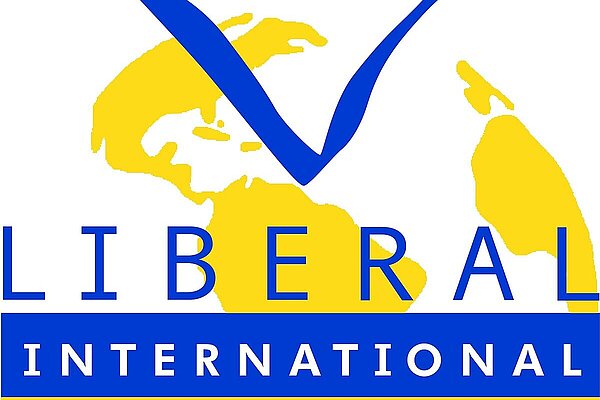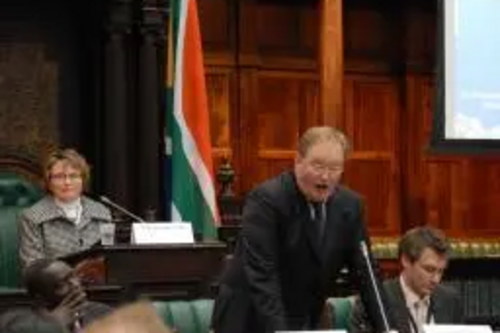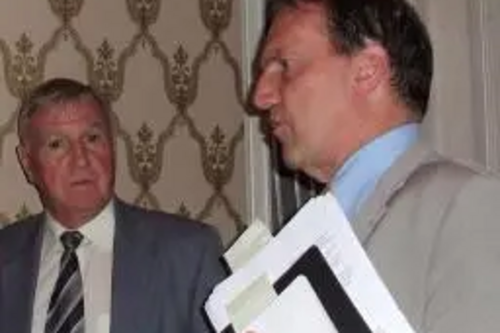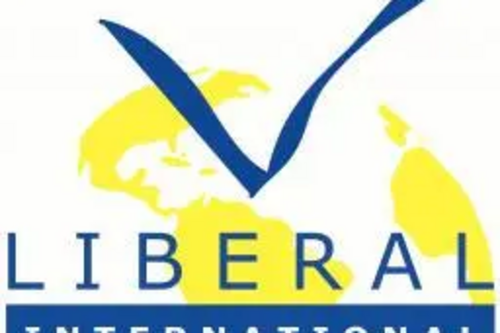
Shirin Ebadi awarded LI Prize for Freedom
Liberal International has awarded its 2010 Prize for Freedom to Dr Shirin Ebadi, an Iranian Nobel Peace Prize laureate.
LIBG is affiliated to Liberal International - the global federation of liberal parties. Its aims are to keep liberal values - human rights, social justice, democracy and rule of law - alive in the face of adversity. Working with like-minded parties across the globe, we want to keep Britain's pro-European, internationalist voice audible loud and clear across the globe.
LIBG holds regular events and produces a regular journal for members InterLib.
Please explore our website pages for more information.

We are delighted to invite you to a panel discussion exploring the recent developments and the future of the Arctic region. Monday 6th October 2025 AT 7 PM on ZOOM
Fierce competition for minerals, military bases and commercial maritime routes have accelerated the strategic importance of the Arctic. Environmental challenges are simmering in the background while major players are looking elsewhere.
Superpower ambitions are potentially shaking up the future of Canada and Greenland. Russia and China have found a new partnership. Both are keen to get economic and military advantages.
What does it all mean for western European security and to the UK?
Our panel:
Astrid Thors, a lawyer, a Finnish politician, former MP and member of European Parliament, the former Organisation for Security and Cooperation in Europe (OSCE) High Commissioner on National Minorities (2013-2016), former minister of Migration and European Affairs in Finland. Deputy President of Liberal International.
Henrik Bach Mortensen, former Chairman of the Danish Institute of Parties and Democracy (DIPD). Vice President in ALDE (2016-2023). VP Liberal International
Adrian Hyyrylainen-Trett, chairing the meeting, Deputy Chairman LIBG
Join Zoom Meeting
us06web.zoom.us/j/87391589013
Meeting ID: 873 9158 9013
Passcode: 26471
Following the success of last year's event, Liberal International Scotland are delighted to invite you to a panel discussion
on Saturday 6th September 2025
at the Royal Scots Club
Abercrombie Place
Edinburgh
from 11.30 to 14.00
We have lined up an excellent panel:
Lord Jeremy Purvis of Tweed - newly elected Leader of the Liberal Democrats in the House of Lords
Gillian Gloyer - Secretary of LI Scotland and an with a strong knowledge of EuropeJ
Jules Maaten - former MEP Head of EU regional office at Friedrich Naumann Foundation for Freedom.
Tickets cost just £25, which includes tea or coffee on arrival at 11.30 and a light lunch served from 13.15.
Numbers are strictly limited.
To reserve you place, please send £25.00 to:
Liberal International British Group Scottish Committee with Virgin Money:Sort Code 82-68-17, Account No.30046032.Please add the reference ‘06Sep25 [your surname]’.
Or email: wwilson1947@icloud.com
LIBG online forum The Canadian General Election. Monday 16 June 2025 at 18.30, UK time
Canada’s election on 28 April brought the Liberal Party back to power for fourth successive term - just short of an overall majority, and with a new leader in Mark Carney. Join us on Monday 16 June at 6.30 PM UK time to discuss what happened, why it happened, and what it means for Canada, not least for its relationship with the US and its place in a changing world. Chaired by Sir Graham Watson, our panel will include: Mario Canseco is Vancouver based President of Research Co. and leader in public opinion research and Canadian politics. Mario holds a Masters of Journalism from the University of British Columbia and a Bachelors in Communications. Emerson Csorba is located in Montréal, Canada and focuses on the deep tech investment space following leadership roles in geopolitics and energy in the UK, as well as founding and leading a consultancy with clients in Canada, the United States, the United Kingdom, and Israel. He is originally from Edmonton, Alberta and is an alumnus of the University of Alberta (BA), the University of Cambridge (M.Phil), and the University of Oxford (PhD). Dr Christine Cheng, Senior Lecturer in War Studies at King’s College London, teaching on the MA in Conflict, Security & Development. In 2009, she was the Cadieux-Léger Fellow at Canada's Department of Foreign Affairs and International Trade. Join the meeting at: Meeting ID: 833 9680 4492 Passcode: 20314 |
LIBG event on April 14th 2025
Our meeting about the recent momentous changes in Bangladesh marked the first time a professional opera singer has spoken at a LIBG meeting. Monica Yunus, who was a soprano at the Metropolitan Opera in New York for years, is also the daughter of Nobel Peace Prize winner Professor Mohamad Yunus who now leads Bangladesh’s transitional government. Throughout 2024, Monica campaigned to keep her father from being imprisoned on trumped up charges by Bangladesh’s ruler, Sheikh Hasina. Monica was then at her father’s side as young people led a popular uprising that Hasina’s regime used disproportionate violence against. The protests continued until August 2024 when Hasina and her Awami League governing party were driven from power. During the LIBG meeting, Monica showed a short video about the uprising and the brutality of Hasina’s security services.
Professor Yunus now oversees the transitional government, including 11commissions drafting a new constitution, and examining the justice system, public administration, anti-corruption, police reform, electoral system reform, among other areas. Professor Farhana Sultana spoke of the challenges facing the transitional government, including a legacy of corruption and a relentless campaign of daily disinformation spread by the Awami League and its backers overseas. She said there was evidence that the Indian government spreads falsehoods about Muslim attacks on the Hindu minority.
Professor Sultana touched on Sheikh Hasina’s crimes, the UN investigation report on the unrest in 2024, and how justice is being denied as India refuses to extradite Hasina. There are also targeted attacks on Professor Yunus and the interim government, deliberately diverting social media attention from the injustices and corruption of the Hasina regime. This means the interim government is forced to constantly debunk disinformation and clarify false accusations, while trying to build democracy. It also creates tension with India, although Bangladesh has repeatedly stated it wants good relations with India. Professor Sultana believes India wants Bangladesh to be a vassal state it can control geopolitically, financially, resource-wise, and ideologically, all of which it lost with the fall of Hasina. China is taking advantage of this to open friendly relations with the interim government.
I recommend this article by Professor Sultana in which she reprises the talk she gave LIBG: https://www.laprogressive.com/foreign-policy/democracy-after-dictatorship
Maher Sattar is an award-winning journalist and senior editor at the Fuller project in the States. He has published research on the way in which the central role of women in the 2024 uprising has been downplayed, with women marginalized. He has also highlighted the treatment of women in Bangladesh’s massive garment industry – an industry that now faces crippling tariffs on its exports thanks to the Trump administration.
Mumtaz Hussain is the first British Bangladeshi to be elected to Birmingham City Council. She represents an area with a significant British Bangladeshi population, and where supporters of the Awami League remain active. She admitted she didn’t follow events in Bangladesh closely, busy as she is working for the people who she represents in Birmingham.
Many thanks to Rebecca Tinsley for organising this event.
A joint LIBG and LDEG event on 25 February 2025.
This joint LIBG and LDEG event was interesting, in-depth and well attended.The guest speakers were FDP MP Thomas Hacker, former MEP and founder of Women In Parliaments Silvana Koch- Mehrin, and LDEG chair (and resident of Germany) Rob Harrison. Sir Graham Watson chaired.
Initially each speaker spoke about the elections and their Liberal party, the Free Democratic Party which lost all seats, having been a junior coalition member. There was excellent analysis about how the party can improve itself as well as regret that they cannot help to influence the Bundestag at such an important time when Germany needs to be strong in Europe.
The far-right AfD achieved approximately 20% of the vote. They see themselves as the ‘nice face’ of the Nazis. The far-left party Die Linke also did well and these two extremist parties, which are both friendly with Putin, could vote together and prevent policies being adopted. So new Chancellor Merz will try to get a vote on some of the necessary changes BEFORE the new Bundestag comes in.
An analysis of voting patterns showed that AfD voters tend to be from East Germany and male voters from poorer regions in the West so integration is still an important issue for the new government.
Regarding defence and security, the new government should be stronger and play an important role in a more united Europe, possibly with French nuclear weapons stationed in Germany. On Ukraine, when the socialists were the strongest party, they managed to stop weapons to Ukraine. The Liberals succeeded in pushing for money to be given instead.
Thomas Hacker says, we have survived one month of Trump so only another 47 to go!
Trump, Harris and the Future of Transatlantic Relations
LIBG held a well-attended meeting on the first day of Liberal Democrat conference, discussing the future of NATO, Ukraine and American foreign policy. With an audience of over 130 people, LIBG was heartened by the show of interest in this crucial area of policy.
Mark Bergman, from the Democratic Party in Washington DC, refused to forecast the November 5th result. However, he left the meeting in no doubt that a Trump victory would have catastrophic consequences for Ukraine. He said that while Trump wants to withdraw the US from NATO, not all of his advisors shared this view, and that there was a chance that wiser heads might prevail. Phil Gordon, Kamala Harris’s likely national security advisor, has a track record suggesting not so much intervention (he was against the Iraq invasion and the hasty withdrawal from Afghanistan), but of fighting to uphold the liberal, democratic values of partner nations. Rather than isolationism or America first, a Harris administration would see America as one among partners, working collaboratively.
Yevheniia Kravchuk, deputy chair of Ukraine’s ruling Servant of the People party, spoke movingly about the existential fight facing her nation. The meeting was also an opportunity for members to listen to the new MP for South Devon, Caroline Voaden. It was chaired by LIBG chair Irina von Wiese.
The general discussion on Ukraine included concerns that Putin would not stop short of crushing and erasing Ukrainian identity if he is allowed to occupy the country. If the international community loses the will to support Ukraine, the result will be a repressive occupation in which thousands are imprisoned, tortured and killed.
When discussing the likelihood that Putin might respond to the use of Storm Shadow missiles on Russian soil, there was a view that a massive cyber attack on the UK could be more likely. This is concerning as the British public is in no way prepared for such an attack, and the UK government should be educating people to understand the scale of disruption that is possible, should the Kremlin decide to unleash its cyber capabilities.
More details will be included in the next edition of InterLib.
Many thanks to Rebecca Tinsley for organising this event.

Liberal International has awarded its 2010 Prize for Freedom to Dr Shirin Ebadi, an Iranian Nobel Peace Prize laureate.

By Robert Woodthorpe-Browne

Following a powerful speech from its newly elected President, Liberal Democrat deputy leader Simon Hughes, the 2010 annual general meeting of the British Group of the Liberal International unanimously called on the government to rule out the like-for-like replacement of the Trident nuclear weapons system.

The recent Lib Dem campaign successes, and the way 'Cleggmania' hit the UK after the first party leaders' television debate, was not lost on the foreign press nor on our sister parties in Europe and the Commonwealth.
by Robert Woodthorpe-Browne

Some 300 liberals from around the globe met in Cairo from 29-31 October for the latest congress and executive meeting. The event is held every 18 months.